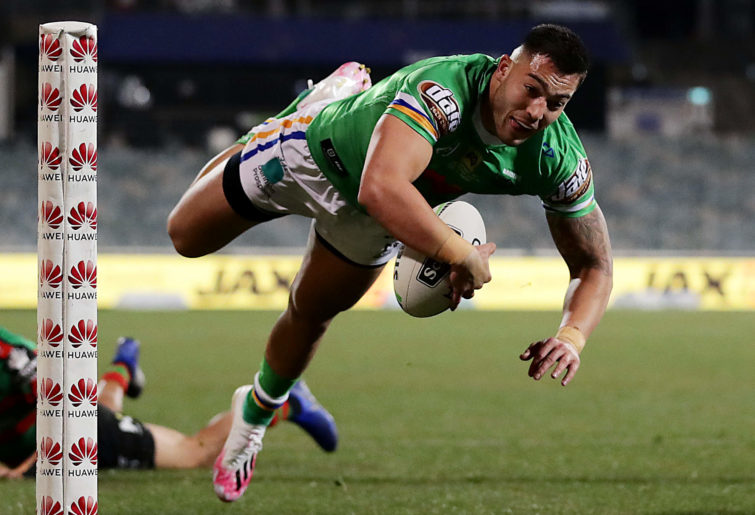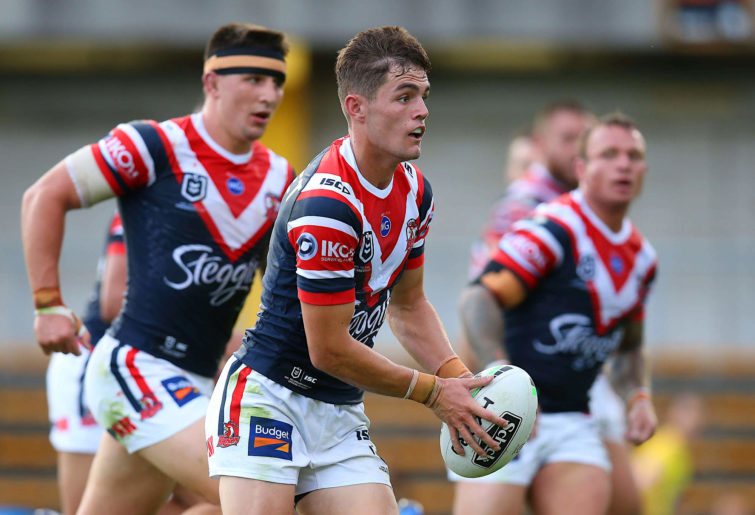COVID-19 has and continues to expose some of the deficiencies of our game.
The age-old cliche of needing a loss could apply to this season as a whole. While things are going well in general, some areas of concern can be glossed over and forgotten in among successes.
Last weekend we had some intriguing and important matches, the results of which render this weekend a little less exciting. After a strong month or so the Rabbitohs weren’t able to beat the Storm and keep moving towards the top four. The Raiders may as well have been a carbon copy, competitive and gritty against the Roosters but ultimately not good enough and as a result stuck back in fifth. The Warriors couldn’t take another step towards an unlikely finals berth, keeping the Eels in third, and the Panthers all but sewed up the minor premiership.
There has always been talk that the NRL season is too long. We have three rounds to go this year, but everything is probably set, the minor premiership is determined, the top four and the top eight just about done. Go on long enough and maybe you would have some movement, maybe some of the ‘mathematical chances’ would come into calculations, but at this point everyone has had long enough and teams are probably finishing where they deserve.

(Photo by Mark Metcalfe/Getty Images)
It begs the question: why under normal circumstances would we have seven rounds to go? The obvious answer is to create the content for TV. That is the bottom line for the NRL – the more games we have, the more we have to sell.
Origin creates that smokescreen mid-season. We get that lull where matches matter a bit less, byes kick in and star players are out while this Origin machine we have created takes centre stage. It means that some of the lower-ranked sides notch points, and we need that time after Origin for order to be restored.
From an entertainment point of view it works. We get that race to the finals and the intrigue over how sides cope with the Origin workload. You see it every year, a team starting like a house on fire and Origin derailing their season. Likewise you see the side that takes more time to get going, get in late and make a splash.
It helps the NRL talk up the competition as being “close”, and it keeps more fans engaged longer in the season. It also helps to promote the salary cap as working as it should to even out the playing field. What we are seeing this season, though, is that really without Origin the competition is far more skewed than ever and that there are some real concerns about that.
Next year we will more than likely go back to the old format, but what this season tells us can’t be neglected. We are basically down to three or so contenders this year, with a couple more potentially a factor if they can get it together. To have so many teams out of the running so early is a concern. The same teams are competitive with the same coaches under solid structures. The rest are battling.
We have seen this year the value we place on the coaches both when teams are winning and when they are losing. Five coaches have moved on from their clubs since the start of the year. It is the quick fix these days – when things aren’t going well it is always the coach at the centre of it. We only have so many experienced coaches, the alternative being a rookie or one who has tried and failed elsewhere. But far more goes into a football team than the coach, and it isn’t going to solve all the problems.
We are talking about expansion and wanting to keep the season at this length, but do we have the quality of players and management structures to do that? Adding a team is going to thin out talent even more, and we already have so many sides struggling.
The sides at the top this season aren’t surprising at all. The Storm and the Roosters have been competitive for a decade. The Panthers and Raiders have built this success over a long period of time. The Rabbitohs have Wayne Bennett at the helm. The Eels have enjoyed a long stint with Brad Arthur and, while they look shaky now, are at the very least competitive. The Knights and Sharks are making up the numbers.

(Photo by Jason McCawley/Getty Images)
It is hard to see how things are going to change. This hasn’t happened overnight; it has been brewing for some time. We have some change every year and occasionally someone strikes it lucky, but for the most part the competition is becoming predictable in who will be competitive.
We no longer have an under-20s competition. How that ever occurred I will never know. To call it too expensive under such a wasteful administration is laughable. Not only that, but how does the NRL expect to develop talent without clear pathways? The salary cap doesn’t reward or incentivise developing talent. We have a situation now where far too many clubs try to buy success rather than develop it – it has taken Penrith ten years to finally reap the fruits they have sowed.
That is how long it takes when you develop rather than go to market. The clear-out is that quick-fix solution that comes with a new coach as they seek to buy what they need to get their team competitive and secure their future. Coaching is such a volatile game that if you don’t get that success right away, you are out the door. You have to play the Russian roulette of paying overs for players at a struggling club and hope they perform for you. Look at David Fifita and the Titans.
It is imperative to develop talent – that is how the competition maintains its strength and can consider expansion. The NRL is in a situation like the rest of the world. They need to spend money at a time when money has never been tighter. They need to be developing and finding talent not just in Australia but in the Pacific Islands and New Zealand.
The NRL has created all these different formats that jam the calendar full of rugby league – the All-Stars, Origin, internationals, nines – but without any clear structure and clarity over what has a long-term future. Origin is always there, so too the regular season. Everything else comes and goes, moves around and fails to develop any strength or consistency. Doing so might take the pressure off having to have such a long season but could also assist in generating clear pathways and vision for the long-term future of the game.
Peter V’landys has done much for the game in his short stint and is popular with everyone in the game. He has shown he isn’t afraid to listen and respond to what is needed. He and Andrew Abdo have their work cut out for them, though, with plenty of questions going forward as we move into next season.
from The Roar https://www.theroar.com.au/2020/09/10/season-structure-exposing-big-deficiencies-in-our-game/


0 Comments